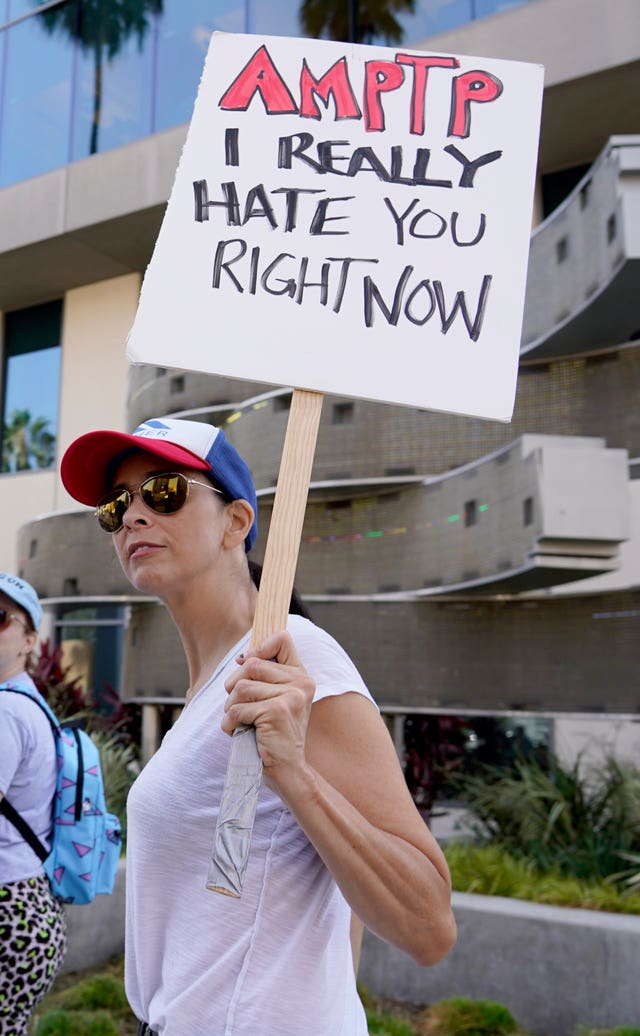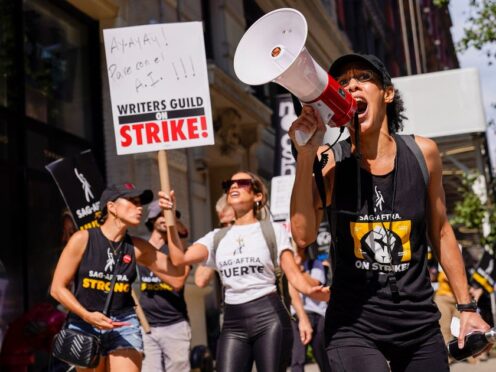The Alliance of Motion Picture and Television Producers (AMPTP) has released its recent proposal to the Writer’s Guild of America (WGA), saying its “priority” is to end the ongoing strike.
The organisation, which represents major Hollywood studios, said its “comprehensive package” addressed all the issues that the union has identified.
Over 11,000 members of the WGA have now been on strike since May 2, overissues including pay and the threat of artificial intelligence (AI).
They have since been joined by major US actors union Sag-Aftra, who also began industrial activity on July 14.

Negotiators for the AMPTP and the WGA met on August 11 and have continued to meet since.
According to a release put out on Tuesday by the AMPTP, the new offer to the WGA recognises “the foundational role writers play in the industry and underscores the companies’ commitment to ending the strike”.
It includes “unprecedented terms” in the areas of generative AI, data transparency and minimum staffing, the AMPTP said.
Carol Lombardini, president of the AMPTP, said, “Our priority is to end the strike so that valued members of the creative community can return to what they do best and to end the hardships that so many people and businesses that service the industry are experiencing.
“We have come to the table with an offer that meets the priority concerns the writers have expressed.
“We are deeply committed to ending the strike and are hopeful that the WGA will work toward the same resolution.”
As part of its proposal the AMPTP promises “landmark protections” for writers surrounding the use of Generative Artificial Intelligence (GAI).
“Written material produced by GAI will not be considered literary material,” the proposal states, adding: “A writer will not be disadvantaged if any part of the script is based on GAI-produced material.”
The AMPTP is offering the WGA a 5% increase in wage rates in the first year of the contract, 4% in the second year and 3.5% in the third year.
It is also offering worldwide residual boosts in the amount of 87,546 dollars (£68,671) per episode for three exhibition years, up from 72,067 dollars (£56,530).
The WGA has been approached for comment.
